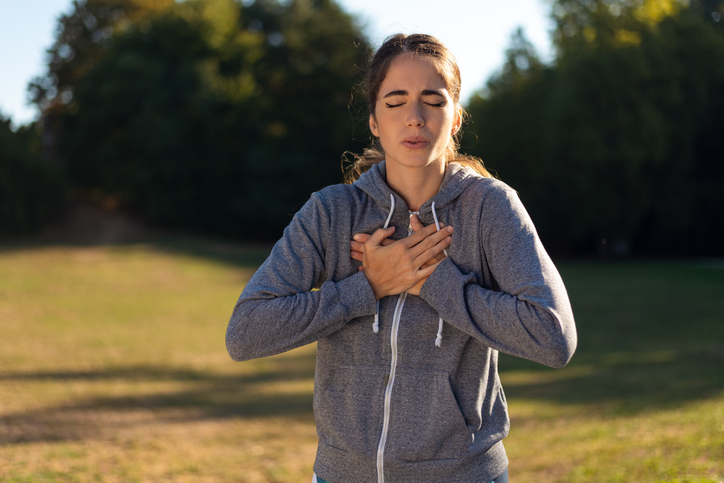 There is more and more representation of mental health issues in television and movies, which can be incredibly helpful for those who are looking for representation of themselves in characters, it can also be a little misleading when the symptoms are over-generalized. One of the more recent, common, and frequent portrayals are panic and anxiety attacks.
There is more and more representation of mental health issues in television and movies, which can be incredibly helpful for those who are looking for representation of themselves in characters, it can also be a little misleading when the symptoms are over-generalized. One of the more recent, common, and frequent portrayals are panic and anxiety attacks.
You may have seen this scene:
"A character becomes stressed or afraid and suddenly they can't catch their breath, they're shaky, eyes are clenched shut, clutching at their chest. They become dizzy and cling to the wall or fall to the floor".
Sound familiar? There wasn't even the name of a movie, show, or a specific character mentioned but one or several of the same sensationalized portrayals probably came to mind.
While some of those symptoms listed of anxiety and panic attacks are more actual symptoms, that doesn't mean those are everyone's symptoms or the only ones you'd have. It's possible that the ones you see on TV and movies are more common because they are easier for actors to act out.
Think about this concept in real life: people who have never experienced a panic attack sometimes end up at the emergency room thinking they are having a heart attack or dying. That is how scary and upsetting to your body they can be. There are both mental and physical aspects of a lm attack that can be difficult to convey and can mimic other illness, issues, diseases, or disorders. It may not be as easy as walking into an ER thinking you are dying and being told you are "just having a panic attack" or "it's just anxiety". It also isn't as easy as "taking some breaths" or getting a pill to relieve the symptoms.
If you are wondering to yourself if "that weird thing that happened to me before" or something you can only define as "an episode" was an anxiety or panic attack, speak to a health professional. They can collaborate with you about all the things that led up to you feeling the way you did, determine if it was an anxiety or panic attack, and look for ways to prevent them from happening again. They can also help with coping strategies or recommend additional people join your wellness team.
Do your own research as well, treading lightly to avoid adding more stress and fear to your curiosity. Start with these two areas of evaluation: thinking and feeling. Think of what was happening in your home/work life. Think about what your physical/mental health was at the time. Think about where you were and what possible triggering things were there as well. Try and remember sights, sounds, smells. Then, take stock of all the physical things you felt. How did it start? What did it feel like in your body? How long did the feeling last? How long before you felt like you again? Did it interfere with you being able to go about the rest of your day?
Remember, it can and might look entirely different than what you've heard or seen before, with actors or with other people you know or read about. Anxiety is a completely individual issue and attacks are too.